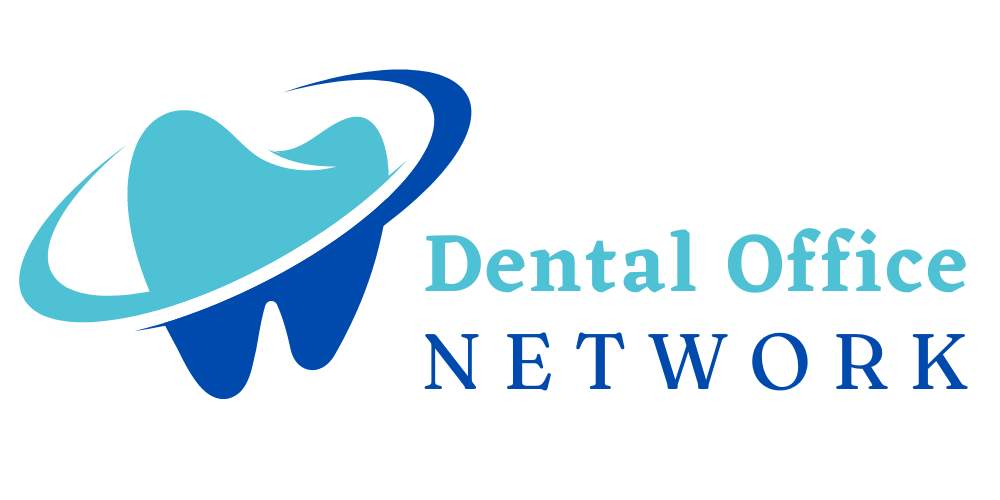Understanding Dental Offices: What They Are and What They Do
A dental office is a place where dental professionals provide oral health services to patients. Dental offices can be found in various settings, such as hospitals, clinics, and standalone practices. They provide a wide range of dental services, including preventive care, restorative procedures, cosmetic dentistry, and emergency dental services.
Dental offices are staffed by a team of dental professionals, including dentists, dental hygienists, dental assistants, and office administrators. The size of the team depends on the size of the practice and the services offered.
Dental offices are equipped with the latest dental technology and equipment, such as digital X-rays, intraoral cameras, and laser technology. They also use modern dental materials and techniques to provide high-quality dental care to patients.
What Services Do Dental Offices Offer?
Dental offices offer a wide range of dental services to patients. Here are some of the most common services provided by dental offices:
Preventive Care: Dental offices offer preventive care services to help patients maintain good oral health. This includes regular dental checkups, teeth cleanings, and fluoride treatments. During these appointments, dental professionals can identify and address any oral health issues before they become more serious.
Restorative Procedures: Dental offices provide restorative procedures to repair damaged or decayed teeth. This includes dental fillings, crowns, bridges, and root canals. These procedures can help patients restore the function and appearance of their teeth.
Cosmetic Dentistry: Dental offices also offer cosmetic dentistry services to improve the appearance of patients’ teeth. This includes teeth whitening, veneers, and cosmetic bonding. These procedures can help patients achieve a more attractive and confident smile.
Emergency Dental Services: Dental offices provide emergency dental services for patients who experience dental emergencies, such as severe toothaches, broken teeth, or knocked-out teeth. These services can help patients get the immediate care they need to relieve their pain and prevent further damage to their teeth.
Understanding the Functions and Services of a Dental Office
Dental offices are establishments that provide oral health care services to patients. They are run by dental professionals who have undergone extensive training and education in various aspects of dentistry. A dental office is an important place for individuals who are looking to maintain good oral health, and it is essential to understand what they offer and how they function.
We will delve into the various functions and services offered by a dental office, including the types of dental professionals that work there, the equipment and technology used, and the importance of regular dental visits for maintaining good oral health.
Types of Dental Professionals in a Dental Office
A dental office typically employs a team of dental professionals who work together to provide comprehensive oral health care services. These professionals include:
- Dentists
Dentists are dental professionals who have undergone extensive training in the diagnosis, treatment, and prevention of oral health problems. They are responsible for performing routine dental procedures such as cleanings, fillings, and extractions, as well as more complex procedures such as root canals, dental implants, and orthodontics.
- Dental Hygienists
Dental hygienists work under the supervision of a dentist and are responsible for cleaning teeth, examining patients for signs of oral health problems, and educating patients on proper oral hygiene practices. They also assist dentists during procedures and may take X-rays or perform other diagnostic tests.
- Dental Assistants
Dental assistants work alongside dentists during procedures, providing support and assistance as needed. They may prepare equipment, take X-rays, and perform other tasks as directed by the dentist.
- Dental Specialists
Dental offices may also employ dental specialists who have undergone additional training in a specific area of dentistry, such as orthodontics, periodontics, endodontics, or oral surgery. These specialists work with patients who require more specialized treatment.
Equipment and Technology Used in a Dental Office
Dental offices are equipped with a range of tools and technology that allow dental professionals to provide high-quality oral health care services. Some of the most common equipment and technology used in dental offices include:
- Dental Chairs and Lights
Dental chairs and lights are essential pieces of equipment that allow dentists to perform procedures comfortably and efficiently. Dental chairs are designed to support patients in a comfortable position during procedures, while dental lights provide illumination to help dentists see inside the patient’s mouth.
- Dental Handpieces
Dental handpieces are small, handheld devices that dentists use to perform a range of procedures, including fillings, extractions, and root canals. There are several types of dental handpieces available, including high-speed, low-speed, and air-driven handpieces.
- Dental X-Ray Machines
Dental X-ray machines are used to take images of the teeth and jawbones, allowing dental professionals to diagnose and treat oral health problems. There are several types of dental X-ray machines available, including intraoral X-ray machines, which take images of the teeth and gums, and panoramic X-ray machines, which provide a wider view of the mouth.
- Dental Lasers
Dental lasers are used to perform a range of procedures, including gum surgery, cavity treatment, and teeth whitening. They are highly precise and can be used to target specific areas of the mouth without damaging surrounding tissue.
- Computerized Dental Technology
Many dental offices now use computerized technology to improve the accuracy and efficiency of dental procedures. Computer-aided design (CAD) and computer-aided manufacturing (CAM) technology are used to create dental restorations such as crowns and bridges, while digital imaging technology is used to create three-dimensional models of the mouth.
Importance of Regular Dental Visits for Maintaining Good Oral Health
Regular dental visits are an essential part of maintaining good oral health. During these visits, dental professionals can identify and treat oral health problems before they become more serious. Here are some of the key reasons why regular dental visits are important:
- Preventing Tooth Decay and Gum Disease
Regular dental cleanings and checkups can help prevent tooth decay and gum disease. Dental professionals can remove plaque and tartar buildup from teeth, which can contribute to these conditions. They can also identify early signs of tooth decay or gum disease and provide treatment before these problems become more serious.
- Early Detection of Oral Cancer
Oral cancer can be difficult to detect in its early stages, but regular dental checkups can help identify it. During a routine exam, dental professionals will examine the mouth, tongue, and throat for signs of cancer or other abnormalities.
- Maintaining Good Overall Health
There is a strong connection between oral health and overall health. Poor oral health can contribute to a range of other health problems, including heart disease, stroke, and diabetes. Regular dental visits can help prevent these problems by maintaining good oral health.
- Monitoring Oral Health for Certain Conditions
Individuals with certain health conditions, such as diabetes or HIV, may be more prone to oral health problems. Regular dental visits can help monitor oral health and identify any problems early on.
In conclusion, a dental office is a vital establishment that provides essential oral health care services to patients. It is run by a team of dental professionals who are highly trained and skilled in various aspects of dentistry. A dental office is equipped with a range of tools and technology that allow dental professionals to provide high-quality oral health care services.
Regular dental visits are an essential part of maintaining good oral health. During these visits, dental professionals can identify and treat oral health problems before they become more serious. They can also help prevent tooth decay, gum disease, and other oral health problems. By understanding the functions and services of a dental office, individuals can take an active role in maintaining good oral health and overall health.












